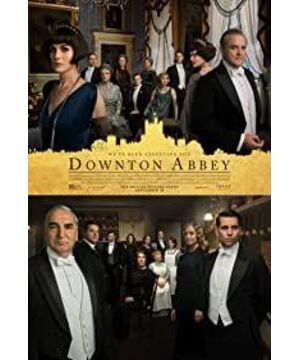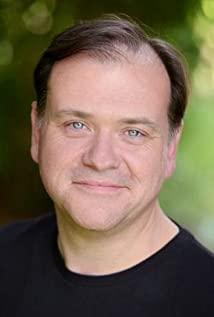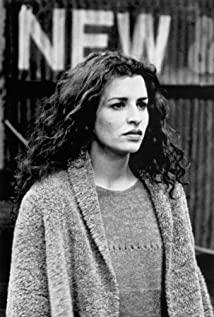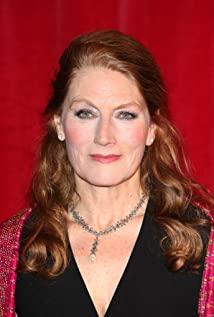When it comes to "Downton Abbey", many fans of British dramas say that this is a must-see classic. Unlike "Sherlock", "Downton Abbey" is more like the British version of Dream of Red Mansions. At the beginning of the 20th century, with the transformation of British society, the middle class gradually became stronger, and the aristocracy gradually declined, and most of the remaining ones barely maintained a decent style. What Downton shows is the life of the Earl of Gratham family in this transformation.
Downton's story begins when the manor receives the bad news of the sinking of the Titanic. The Count had no children, and unfortunately, the heir and the alternate heir he identified all boarded the ship and sank along with the Titanic. Seeing that Downton was about to have no successor, as a result, the inheritance of the manor passed to Thomas, a distant relative. Thomas is a lawyer. He was not accepted by the pampered earl family at first because he had a job, because only the middle class could work, and the decent aristocracy took on the responsibility of society. In order to prevent Downton's assets from flowing out, the earl's mother, the old earl's wife, brought together the earl's eldest daughters, Mary and Matthew, so that Downton's future heir would ultimately be the Crawley family (that is, the Crowley family). Earl's family).
With the question of Downton's inheritance, the audience gradually learned about the life of the Earl's family, and could appreciate the old-fashioned and elegant side of the British aristocracy. But that's just upstairs life. The beginning of the film shows the busyness and hard work of the servants downstairs. Sweeping dust, polishing silverware, lighting a fire, boiling water, cooking, serving and dressing, and eating, the corridors are full of busy figures coming and going. This point, compared with "Dream of Red Mansions", is more delicate.
Social change sometimes begins with artifacts. The electricity was on, and the old countess felt dazzling. The phone was connected, and Carter, the butler, was still practicing how to make a phone call like a child. Hair irons, toasters, gramophones, many inventions of that era, gradually found their place in Downton Abbey. But Downton, like a castle, has not changed for a hundred years. Those handed down furniture, silver tableware, famous paintings, and books are the symbols of aristocratic status.
If you can see the inheritance and crisis of the nobility in the masters upstairs, then downstairs, you can better appreciate the ideological impact brought by social changes.
Does anyone still want to be a servant now? There are a lot of secretaries and assistants. But social changes are mostly cumulative. Downton's servants also have their own dreams. Always ambitious, Thomas always coveted higher positions, and eventually, he succeeded Carter as Downton's chief butler. A maid taught herself to type. Although she was puzzled by the class downstairs at first, the avant-garde third lady helped her find a job, and finally returned to Downton as a guest as the proprietress. A valet aspired to become a chef, went to France to study, and finally succeeded. Mosley, a depressed former housekeeper after losing his job, also became a school teacher through his passion for teaching others. Tom, who turned out to be just a driver, finally broke through the barriers of class and married the third lady. Even though his political views were different, he gradually integrated into the big family of Downton.
Among the many characters, my favorite is the old countess. She is the one who ultimately cherishes tradition, and is basically a defender of tradition, urging everyone with her witty and sharp words, but often with a knife mouth and a tofu heart. She thought she was just conservative, but later found out that she was defending the integrity of the family. No matter how she looked down on Matthew, who was a lawyer, she tried her best to match his marriage with Mary. No matter how I don't like the Earl's third daughter marrying the driver, I still secretly send them the travel expenses, so that the couple who are far away in Ireland can go back to Downton for Christmas. The second lady was pregnant before marriage, and when the old lady found out, she tried her best to help her hide it. The son and his wife died after giving birth to their third daughter, and there was a rift in their relationship, which she tried to reconcile.
This cherishing of family is the core of aristocratic life. Ultimately, we see that even the non-aristocratic-born Tom, after going to America, voluntarily returned to Downton. The mantle of the old lady herself as a Taoist priest is also officially passed on to Mary in this movie. Mary wanted to give up because of the management pressure of the manor, but the maid said she was the one who maintained Downton, the center of life in this town and the center of many people who work here. The old lady told her that the way of life will definitely change, but Downton will always be a part of life, which will not change even to their descendants.
In the film, we get a peek into the lives of Britain's most senior aristocrats because of the arrival of the king and queen. Even when traveling, butlers, tailors, personal servants, and chefs have two teams of people, which are seamlessly connected. The cost of living like this is borne by taxpayers. The seamstress thinks it's right to steal because she doesn't think these things can only be owned by nobles, and are born with them.
The movie gave Tom a near happy ending. While the real nobles danced indoors with the king and his wife, he and his illegitimate daughter, who was a servant, danced outdoors. They are not nobles, but they must integrate into the life of this noble. They do not fully agree with the life of the nobles, but they can seek common ground while reserving differences. As inter-class interlopers, they have more in common.
Professor McGonagall and Mrs Umbridge face off again. This time, the old lady lost, but what she said was understanding. She is terminally ill, her life is not long, an era will be gone. The owners of Downton will be more and more exposed to social issues, such as hospitals, real estate development, democratic elections, etc. Changes are always inevitable. Just as the Earl's family will miss the old lady, so will we miss the era when the aristocracy was able to maintain decency and dignity, and a time when families were cherished. The portrait of the old lady will hang in the manor, and her teaching will echo in the hearts of everyone. Just as our past has shaped our present, there will be no progress without inheritance.
View more about Downton Abbey reviews











